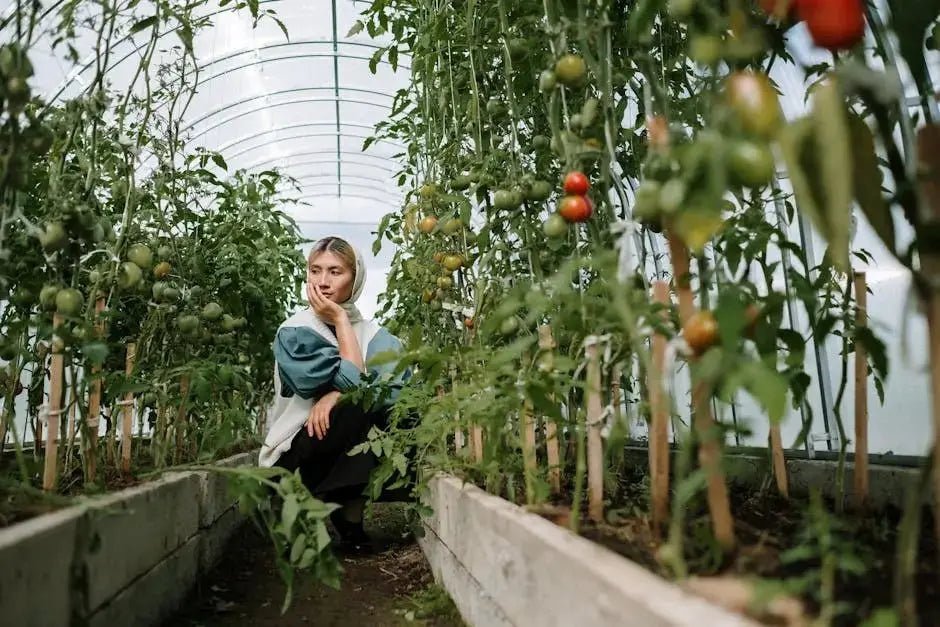
How Long Does It Take for Tomato Seeds to Germinate?
Are you eager to grow your own tomatoes but unsure how long it takes for tomato seeds to germinate? Tomato seed germination can be an exciting journey, and understanding the process can help you ensure a successful yield. In this FAQ blog, we’ll walk you through everything you need to know about the time it takes for tomato seeds to germinate and the factors that influence this duration.
What is the Average Germination Time?
On average, tomato seeds take about 5 to 10 days to germinate. This time frame can vary depending on several factors, such as the type of tomato seed, the soil temperature, and the conditions in which the seeds are planted.
Germination is essentially the process where a seed develops into a new plant. For tomato seeds, this timeframe from planting to sprouting typically lies within a week to ten days. It’s quite a magical phase to observe as the tiny seeds begin to awaken from dormancy and transform into seedlings.
It’s important to note that different tomato varieties might have slight differences in their germination periods. Some heirlooms might take a bit longer, while hybrid varieties often sprout a bit quicker. Regardless, the excitement of watching those first green shoots emerge is well worth the wait.
If the conditions are less than ideal, it might extend the germination period even up to two weeks. Ensuring optimal factors such as temperature and humidity can expedite the process and get you closer to transplanting your seedlings into the garden.
Factors Affecting Germination Time
The germination time for tomato seeds can be influenced by temperature, moisture, seed quality, and light. Ensuring the right balance of these elements can speed up the germination process and increase success rates.
Temperature is one of the most critical factors. Tomato seeds thrive in warmer soil temperatures. Persistent cold can slow down germination, whereas excessively high temperatures can harm the seeds.
Moisture levels in the soil play another crucial role. Seeds require consistent moisture to break through their outer coats, which is why it’s essential to maintain a balanced, damp environment, neither too dry nor too waterlogged.
Using fresh, high-quality seeds significantly impacts germination success and speed. Older seeds or those that have not been stored properly may have lower germination rates and might take longer to sprout.
Light, surprisingly, does not directly influence the germination of tomato seeds since they sprout in the dark. However, once the seedlings emerge, ample light is necessary for their healthy growth and development.
Ideal Temperature for Germination
Tomato seeds germinate best at soil temperatures between 70°F and 85°F (21°C to 29°C). If the soil is too cold or too hot, germination can be delayed or fail altogether.
Maintaining a consistent temperature within this range can be challenging, especially in fluctuating climates. This is where the use of heat mats comes in handy; they help keep the soil at a stable, optimal temperature conducive to seed sprouting.
Monitoring your soil temperature is easier with a soil thermometer. By ensuring the right conditions, you can give your tomato seeds the best possible start in life.
If you’re growing indoors, placing the seed trays in a warm, sunny spot or under grow lights can also help maintain the ideal temperature.
The Role of Moisture in Germination
Consistent moisture is crucial for tomato seed germination. The soil should be kept moist but not waterlogged to provide the seeds with the right environment to sprout.
A gentle misting daily can help maintain the moisture levels without oversaturating the soil. Alternatively, covering the seed trays with a clear plastic dome can help retain moisture and create a mini greenhouse effect.
It’s critical to strike a balance; too much water can lead to fungal issues like damping-off, while too little water can cause the seeds to dry out and fail to germinate.
Monitoring soil moisture regularly and addressing any imbalances promptly are key practices in fostering a healthy germination environment.
Importance of Seed Quality
Using high-quality, disease-free seeds increases the chances of successful germination. Poor-quality seeds may have reduced germination rates or take longer to sprout.
Seeds that are improperly stored, old, or obtained from unreliable sources may not perform as well as fresh, well-kept seeds. We recommend purchasing your seeds from reputable suppliers.
Testing a small batch of seeds before planting all can give you an idea of their viability and save you from unnecessary disappointment.
Checking for visible damages or imperfections on seeds and ensuring they have been kept in cool, dry conditions can greatly enhance their germination potential.
Do Tomato Seeds Need Light to Germinate?
Tomato seeds do not need light to germinate. They should be planted about 1⁄4 inch deep in the soil, where they will sprout in the dark. Once the seedlings emerge, they will need plenty of light to grow well.
The lack of light requirement for germination means you can start your seeds indoors in a warm, dark place and only move them to a well-lit area once they begin to sprout.
However, after germination, transitioning the seedlings to a brighter spot is crucial. Ideally, they should receive at least 12-16 hours of light per day to ensure robust growth. This can be natural sunlight or grow lights.
Without sufficient light, the seedlings may become leggy and weak, making them susceptible to diseases and less productive once transplanted to the garden.
Tips for Speeding Up Germination
To speed up germination, you can soak the tomato seeds in warm water for a few hours before planting, use a heat mat to maintain a consistent soil temperature, and ensure proper ventilation to prevent fungal growth.
Soaking the seeds helps to soften the hard seed coat, making it easier for the seedling to emerge. This can shave off a day or two from the germination period.
Using a heat mat not only keeps the soil at an optimal temperature but also prevents fluctuations that can slow down the germination process. Ensuring good air circulation around the seedlings can also help minimize the risk of fungal issues.
Additionally, consider using a high-quality germination mix that offers optimal drainage and aeration. This reduces the chances of overwatering and helps create the perfect environment for quick germination.
Wrapping Up: Patience Pays Off
Germinating tomato seeds can be a rewarding experience, and it usually takes between 5 to 10 days under optimal conditions. By understanding and controlling the factors that affect germination time, you can help ensure a successful and bountiful tomato harvest. Happy gardening! For more gardening essentials, visit our homepage.

![[Seeds] - Caribbeangardenseed](http://caribbeangardenseed.com/cdn/shop/files/gift-card-gift-card-1_1024x1024_dfa857db-9150-4315-a362-7f0bb3fb9c47_60x28.png?v=1722895789)
